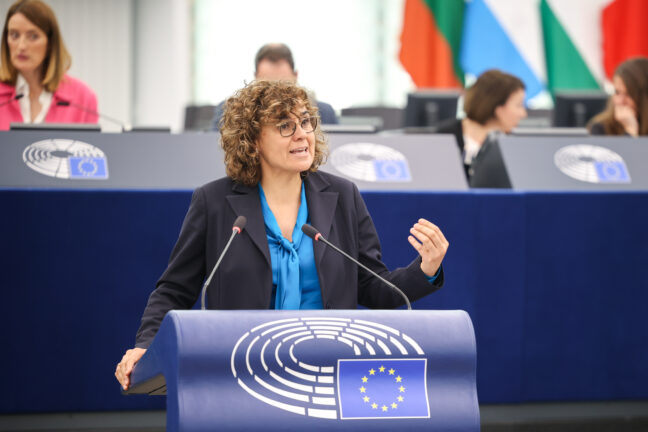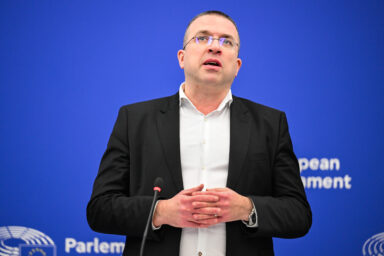As trilogue negotiations near, the EU Council’s long-awaited position on the pharmaceutical package is enjoying a cautious welcome as a step forward. But for many policymakers and industry stakeholders, it does not go far enough. While some applaud progress in aligning incentives with public value, others warn the deal still lacks the ambition needed to strengthen Europe’s global standing in pharmaceutical innovation.
European Parliament rapporteurs on the pharmaceutical package, MEPs Dolors Montserrat (EPP/ES) on the directive and Tiemo Wölken (S&D/GER) on the regulation, welcomed the Council’s position while emphasising the urgency of the task ahead.
Mr Wölken had previously underlined the importance of linking rewards to public value, prioritising equitable access, rare disease innovation, and stronger action on antimicrobial resistance (AMR). His office made clear that the S&D group will fight to restore key provisions dropped by the Council, including incentives tied to high unmet medical need and meaningful patient involvement in regulatory processes.
“The position of the Council generally aligns with ours, with some differences we will have to discuss, in order to reach a new General Pharmaceutical Legislation really able to face the scientific, technological, social and economic challenges that reshaped the world and the European Union during the last 20 years since its last coming into force, as well as being able to prevent, respond to and overcome the challenges that await us in the future,” Ms Montserrat told EU Perspectives.
You might be interested
“Our patients, our industry, our economy and our society urgently need it to keep guaranteeing free access to universal health coverage with the best medicines and treatments available, as it has always been in the Union like no other place in the world,” she said.
Ms Montserrat highlighted the growing role and credibility of the European Parliament’s new health committee in shaping EU public health policy. “It is of particular importance to reflect the authority and expertise of the new committee on public health, which has been so strongly advocated and promoted by the EPP.”

The rapporteur underlined the major political challenges addressed at the time the Parliament adopted its position. “The main issues challenged were the system of incentives to innovations and the obligation for the Marketing Authorisation Holders to make medicines available in all the member states at the same moment and with the same accessibility. I believe that the final text proposed by the Parliament reached an acceptable balance between the needs of putting our patients in the centre of the policy, fostering the global competitiveness of a Made in Europe pharmaceutical industry and tending to the economic sustainability of our national health systems. With some margin for improving the final proposal on the negotiations table with the other two European institutions, the Council and the Commission,” she said.
Casares: push for stronger ambition
Also from the European Parliament, Ms Montserrat’s fellow Spaniard, Nicolás González Casares (S&D) acknowledged that the Council’s position marks progress, but said it still falls short of what is needed.
“Of course, there are parts of the text where we would like to see more ambitious positions reflected, and that is precisely why we will participate in the trilogues: in this final stage of negotiation between co-legislators, we will continue to advocate for supporting European pharmaceutical innovation, while ensuring equitable access to medicines for all patients in the EU,” he opined.
Mr González Casares said the Council’s position reflects the Parliament’s long-standing push to tie incentives to research conducted in Europe. He also pointed to the need for a stronger research ecosystem and better knowledge transfer from universities and research institutions.
He praised the inclusion of comparative clinical trials in multiple member states and alignment with EMA scientific advice. These elements, he noted, help raise the standard of clinical evidence while anchoring innovation within the EU.
“These incentives do improve the quality of clinical trials and adjust the scope of intellectual property protection in favor of accessibility,” he said.
“Our patients, our industry, our economy and our society urgently need it to keep guaranteeing free access to universal health coverage with the best medicines and treatments available, as it has always been in the Union like no other place in the world.” — Dolors Montserrat
He also criticised the Council for proposing to bypass participatory processes on digital medicine leaflets and called for stronger transparency around the use of public funding in drug development.
“Social democrats have strongly insisted on this need for transparency,” Mr González Casares noted. “We will defend its inclusion in the final text during the trilogues.”
His comments reflect broader divisions across the life sciences sector, where the balance between innovation incentives and public value remains hotly contested.
Stakeholders split on linking access to innovation
The Parliament, along with some smaller industry players support tailoring incentives to promote R&D that delivers public value, but views diverge sharply on what form these incentives should take.
EUCOPE, the association for small and mid-sized pharmaceutical companies, shares Mr González Casares’ perspective. It welcomed the Council’s support for modulating incentives based on unmet needs and trial quality but flagged concern about unpredictability. “Regulatory incentives as a whole must remain strong and predictable if the EU wants to foster innovation and address unmet needs,” said Alexander Natz, EUCOPE Secretary General.
The TRANSFORM Alliance, representing advanced therapy developers, echoed the call for patient-centred incentives. “We call on both institutional partners to maintain a forward-looking, patient-centric approach to the trilogue negotiations,” the alliance stated.
Industry: Council fell short on competitiveness
In contrast, major industry associations such as EFPIA and EuropaBio expressed disappointment, arguing the Council’s position fails to bolster Europe’s global competitiveness.
EFPIA, representing research-based pharmaceutical companies, said the decision to reduce intellectual property protections makes Europe “less attractive, discouraging investment and jeopardising the development of innovative treatments.”
EuropaBio, speaking for the biotechnology sector, also voiced concern. Claire Skentelbery, Director General said: “The General Pharmaceutical Legislation (GPL) must reflect the full potential of Europe’s biotech and life sciences sectors. Without it, we risk undermining innovation efforts that can drive resilience, competitiveness, and better health outcomes for citizens.”
Ahead of trilogues, EuropaBio called for stronger support for biotech through a future-proof regulatory framework.
“We certainly hope that the final agreement will support the EU’s ambitions for the biotech industries. The upcoming EU Biotech Act aims to accelerate the regulatory framework and make the EU a global biotech hub. The GPL is a cornerstone to achieving this as it is the primary legislative framework for health biotech,” Adrien Samson, EuropaBio’s Healthcare Policy Senior Manager told EU Perspectives.
“A successful pharmaceutical legislation will be an enabler of EU leadership for biotech, and it is critical at a time of global repositioning across the biotech value chain to send positive signals to the industry and make it clear Europe values innovation.”
EuropaBio also sees room to course-correct. “There is certainly opportunity to turn this around during trilogues. A successful pharmaceutical legislation will be one that provides the necessary incentives and predictability to support investments into the European biotech ecosystem, especially for rare diseases,” Mr Samson added.
“But we also need to make sure the regulatory framework for the approval of innovation is fit-for-purpose and future-proof. That means closing the gap in assessment timelines with the US, avoiding further fragmentations through national exemptions, and making sure we can use the regulatory sandboxes to update the framework without waiting 20 years.”
Generics push for clarity and competition
Medicines for Europe, representing the generics and biosimilars industry, strongly opposed any further IP extensions, warning they would delay access and increase costs. In a detailed open letter, the group highlighted financial impacts of delayed generics: one diabetes medicine was seven months late in Italy (at a cost of €10m), and a pain drug was delayed over 900 days in Germany, adding €185m in costs.
“The threat of U.S. tariffs should not justify extending intellectual property rights, which will simply raise costs and further strain public health budgets,” the group stated. “Don’t mistake IP for security.” The group supports maintaining current exclusivity rules at 11 years and called for a clarified and enforceable Bolar clause to allow off-patent competition from day one after IP expiry.
What comes next
Trilogue negotiations begin on 17 June under the current Polish Presidency, with the Danish Presidency taking over on 1 July. Both institutions are expected to spend the summer working through complex trade-offs on access, affordability, and innovation.
For now, stakeholders agree on one thing: this legislation is a once-in-a-generation opportunity to define Europe’s pharmaceutical future. The question is whether the final deal will strengthen or splinter Europe’s innovation ecosystem.











